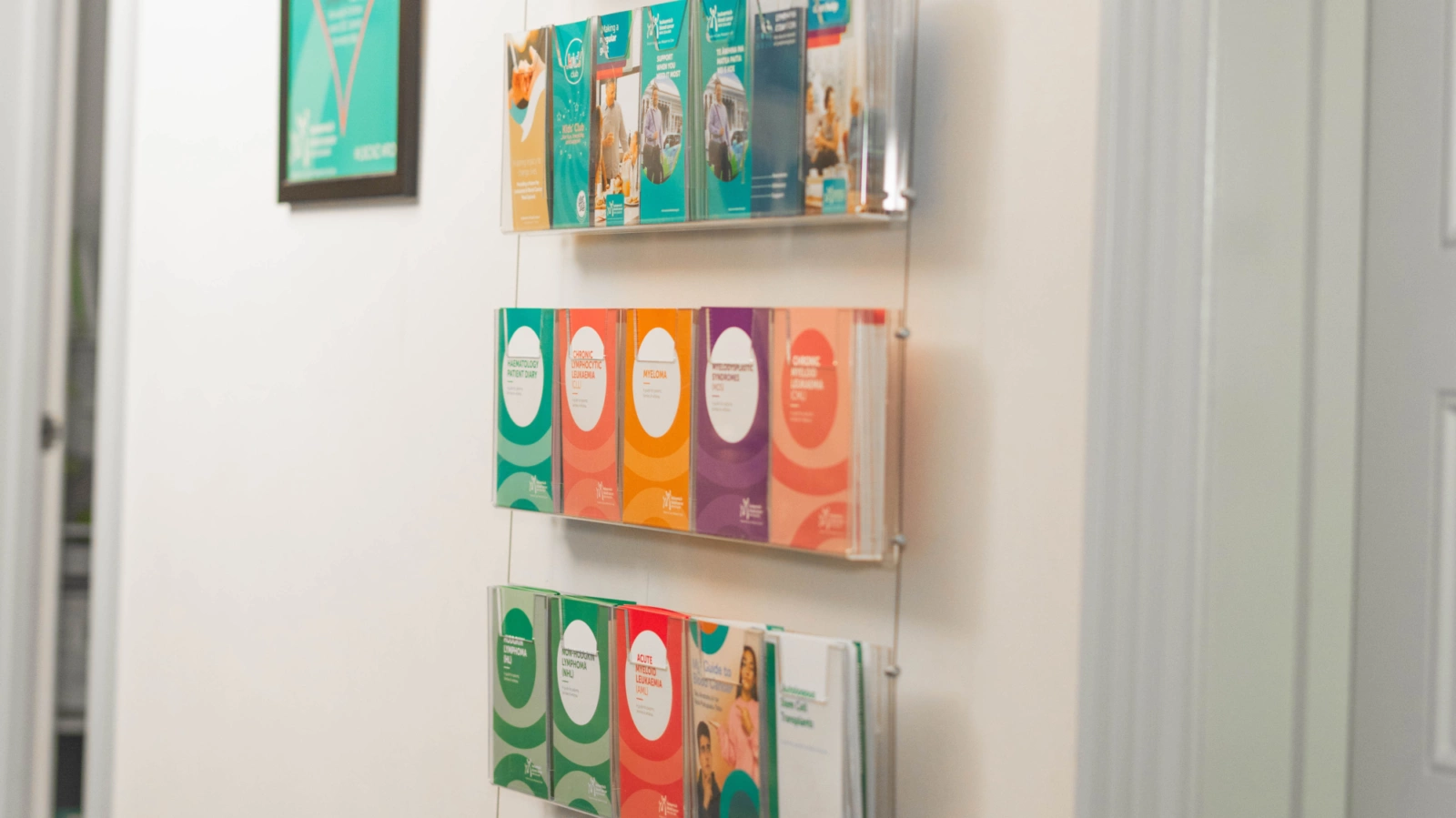What is AML?
Acute myeloid leukaemia (AML) is a type of leukaemia and is a cancer of the myeloid cells. AML causes an overproduction of abnormal blast cells (immature white blood cells) which crowd bone marrow and prevent it from making normal blood cells. Because the bone marrow cannot function properly, it cannot produce adequate numbers of red blood cells, platelets and normal white blood cells.
This makes people with AML more susceptible to anaemia, recurrent infections, bruising and bleeding easily. The abnormal blast cells (leukaemic blasts) eventually spill out into the blood stream and can accumulate in various organs including the spleen and liver.
Signs and symptoms
AML develops quickly. People usually report feeling unwell for only a short period of time before they are diagnosed.
The signs and symptoms of AML are a result of low amounts of normal blood cells in the body.
Anaemia (low haemoglobin)
- Lack of energy (lethargy)
- Feeling tired all the time (fatigue)
- Shortness of breath, especially when exercising
- Dizziness
- Pale skin.
Bleeding and bruising (low platelet count)
- Bruising easily
- Minor cuts or injuries that take a long time to stop bleeding
- Frequent or severe nosebleeds or bleeding gums
- Red or purple pinhead-sized spots on the skin called petechiae
- Heavier or more frequent menstrual periods.
Infections
- Common signs and symptoms of infection include:
- Fever (high temperature)
- Shivering or rigours
- Coughing up yellow or green phlegm
- Fatigue or extreme tiredness
Common types of infection in people with AML may include:
- Chest infections (pneumonia)
- Cellulitis (a skin infection causing redness, swelling and tenderness that can spread)
- Viral colds and influenza (head cold or flu)
- Shingles (a rash with tiny blisters, usually localised to one side or area of the body)
Other symptoms of AML
- Bone pain
- Swollen lymph nodes
- Swollen gums
- Chest pain
- Sore stomach area.
Causes
The exact cause of AML is unknown but there are certain risk factors that may put some people at a higher risk of developing this disease. These include:
- People who have been exposed to large doses of radiation
- Having certain genetic conditions, e.g. Down syndrome (trisomy 21)
- Being exposed to high levels of the chemical benzene
- Previous exposure to chemotherapy drugs
- Smoking
- Having another type of blood disorder
Diagnosis
AML is usually identified by examining a blood sample under a microscope.
Most people with AML have a low red blood cell and platelet count. Many of the white blood cells may be abnormal leukaemic blast cells. The presence of leukaemic blast cells suggests the presence of acute leukaemia. A blood test is helpful for diagnosing AML but a bone marrow biopsy is needed to make sure. A bone marrow biopsy involves taking a sample of bone marrow from the hip bone (iliac crest) or from the sternum (breast bone) and sending it to the laboratory be examined under a microscope. AML is confirmed by the presence of an excessive number of blast cells in the bone marrow. In healthy adults, the bone marrow contains less than five percent of blast cells but this can increase to between 20 – 96 per cent in people who have AML.
Treatment
The aim of treatment for AML is to destroy the leukaemic cells in the body and allow the bone marrow to function normally again.
The treatment that your doctor will recommend depends on things like your age, general health, the type of AML you have and how well it is like to respond to treatment.
The main treatment options for AML are:
- Intensive chemotherapy
- Low dose chemotherapy
- Stem cell transplant (also called bone marrow transplant).
Having intensive chemotherapy or a stem cell transplant decreases the chances of relapsing, if there is good response to the initial treatment. If the AML does return after treatment, your haematologist will talk to you about your treatment options.




